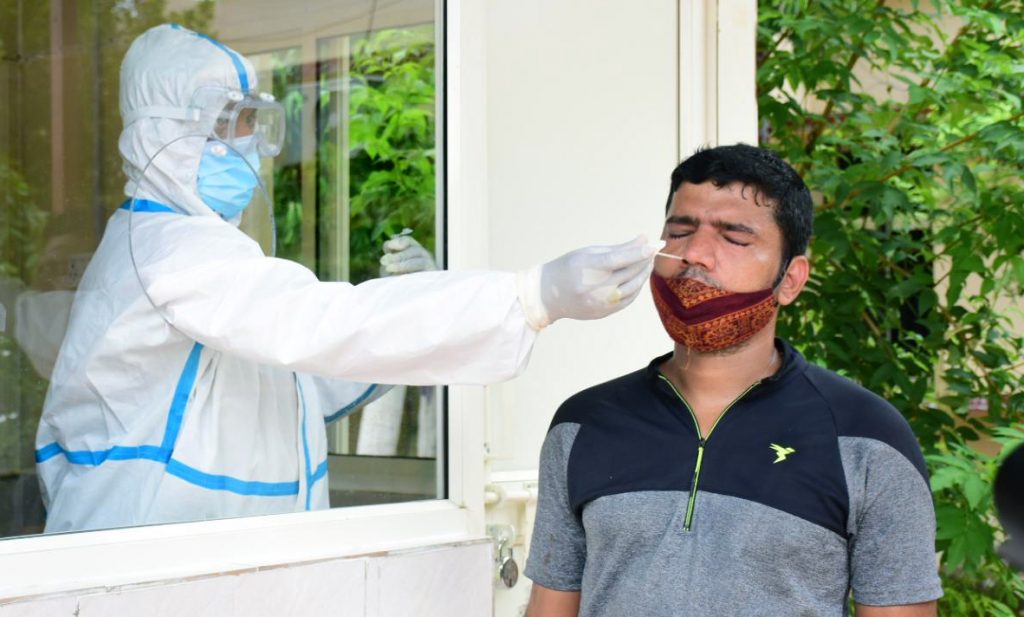Masood Ahmed
Epidemiologists tell us that COVID-19 was not a ‘black swan.’ In our lifetime, there will be pandemics that are equally if not more severe. And when the next one comes, China, Singapore, and maybe Vietnam will be better prepared because they have learned from this terrible experience. Pretty much everyone else, including most of the G20, will be just as vulnerable as they were when COVID-19 hit.
But how can that be? After all, isn’t the world still battling the worst pandemic in a century, which has now killed almost five million people and forced governments to spend $17 trillion (and counting) to mitigate the economic damage? And haven’t world leaders commissioned top experts to figure out what went so wrong and how we can do better?
The expert panels have now reported back, and they all say more or less the same things. The world does not spend enough on monitoring infectious-disease outbreaks, despite their potential to become pandemics. We lack strategic reserves of personal protective equipment (PPE) and medical oxygen, or spare vaccine production capacity that could quickly be ramped up. And the international agencies charged with global health security lack clear mandates and sufficient funding, and are not adequately accountable. Simply put, no one is in charge of the pandemic response and so no one is responsible for it.
Moreover, knowing what we need to do is not the same as actually doing it. We seem unable to get our global act together to make the necessary pandemic-related decisions. Instead, policymakers may well end up implementing a series of half measures – in the G20, the United Nations, the World Health Assembly in Geneva, and via unilateral decisions by some countries – and try to fund them on the cheap. These steps will help, but they will never get the job done. Imagine putting a fire alarm on every second floor of an apartment building and hoping for the best.
Such an approach is difficult to comprehend. If the United States is happy to pay the cost of maintaining a strategic oil reserve with three months’ supply, then surely it is also worth having a strategic reserve of production facilities for PPE, diagnostics, vaccines, and therapeutics. Similarly, the US military alone spends over $5 billion a year to maintain 189,800 reserve troops, even though it hopes never to have to use them. Would it not be a good deal for the world to spend $15 billion a year on preventing pandemics in order to avoid spending tens of trillions to respond to one?
Of course it would. So, what is holding the world back from doing what is needed to avert another COVID-19-type catastrophe? First and foremost, most political systems encourage a short collective attention span. Politicians and voters are done with pandemics. Now they want to focus on building back better, and the international agenda has moved on to other topics.
To be sure, national policymakers know they cannot just walk away from the pandemic, so they will delegate it to the World Health Organisation and other agencies. But only a year ago, many were vociferously complaining that these bodies were not equipped to do the job. The fact is that they have not even come close to defeating COVID-19, which is still raging in a majority of low- and middle-income countries, owing to the pathogen’s dynamics and the slow pace of vaccination.
The global health agencies are nonetheless happy to take back this agenda, because most of them still believe that pandemic preparedness and prevention are strictly health-sector issues. But COVID-19 has made it clear that they are not. Heads of governments and finance ministers must take ownership of these matters alongside health officials.
Yet, after the unprecedented public spending of the past 18 months, finance ministers are under pressure to cut back. Programmes that involve spending more money now to avert some possible future crisis may look like easy targets. But downsizing them won’t look so smart when the chickens come home to roost.
Lastly, there is bureaucratic resistance to an exercise that promises to consolidate or remake organisations and introduce new mechanisms to retrofit governance systems for purpose. Instead, they will cobble together a few improvements and declare success.
Is this a lost cause? After the tragic wake-up call of COVID-19, will the next pandemic catch us sleeping again? I believe not, but only if G20 heads of government recognise that pandemics are a national and global security threat and expend some political capital to shift the international health-security machinery from its current equilibrium. The bold changes the world needs will not happen unless global political leaders establish a vision. The upcoming G20 leaders’ summit in Rome October 30-31 is the right moment to get it done.
The writer is President of the Center for Global Development. ©Project Syndicate.
